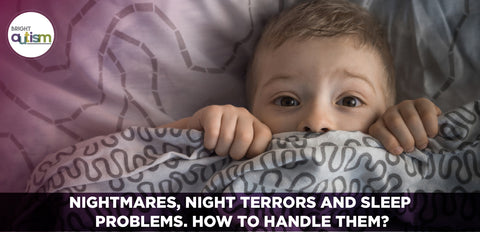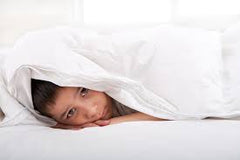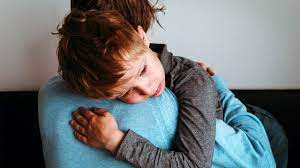
Good quality sleep is important for every kid to grow healthy. Medical experts have a recommended number of hours for every age group. For example, they recommend kids below three years should at least sleep 15 hours a day. Sometimes it's difficult to achieve those hours, especially if there is an autism disorder.
Every parent needs to observe their children's sleeping patterns and report any sleeping problems to physicians for the relevant test.
Why children with autism disorder have sleeping problems?
If a child is overreacting or underreacting to sensory stimuli, they may later in life have repetitive disorders. The following are some of the major traits of these disorders.
- Sleep connection
According to research, children with sleeping problems were reported to have higher chances of repetitive disorders than those who didn't. The traits are most common between the age of two and four years.
- Sensory reactivity
A kid's behavior or performance is also affected by sensory responses. If there are sensory issues, then that explains why the child behaves abnormally. There is a major connection between sleep and sensory organs, which should not be affected.

Ways to handle it
To handle what is causing lack of sleep in your kid, it's important first to understand the main causes. The following are some of the major causes and remedies.
Bedtime habits

The sleeping environment should be conducive. As a parent, you should observe the room's lighting, noise, and the right temperatures. Remember, children with high sensory sensitivity may be affected by tiny things. If the kid is overexcited few minutes before bedtime, it may be difficult for them to calm down and sleep.
Daytime habits

If your kid is more than five years old, avoid long daytime naps. Lack of enough exercise for the children can also cause sleeping problems at night. Don't overfeed or underfeed your kid before they go to sleep. In the evening, avoid giving your children drinks with caffeine.
Anxiety

Anxiety can cause a lack of sleep not only in children but also sometimes in adults. When you are anxious, you tend to overthink, causing unrest in your brain. In case you feel the kids are anxious for whatever reason, you can practice anxiety relaxation strategies. In the evening, never tell your children something that can make them anxious. Always wait until it's during the day.
Night terrors and nightmares

Night terrors are common for children between two and twelve years. It's a normal stage where a kid can suddenly get upset while sleeping. But if you are concerned about the situation, you can seek medical advice. On the other hand, nightmares are bad dreams that make the kid wake up and fail to sleep again. It may sometimes take more than one hour before the kid can go back to sleep after the nightmare.
Medication

If the sleeping problems persist, you must seek medical advice. Melatonin is highly recommended for helping children to sleep for longer hours without waking up at night. The GP can recommend the right dosage of Melatonin to your kid after the necessary tests. With Melatonin your sleep problems are over.
Recommended Blog: How to Get My Child to Sleep Alone?
Teaching their children to sleep alone is one of the most daunting tasks for parents. Usually, a child won't warm up to the idea immediately. He or she might throw a fit or have trouble sleeping.
A child with autism exhibits more attachment to his or her parents. Feelings of separation, even when brief, easily stir emotional distress. That's why sleeping alone is a routine that's very hard to do.
Nonetheless, it's not impossible to teach a child under the spectrum to sleep alone, although it will take patience. Read this article that will show the most effective techniques.










1 comment
Yes but my son is on melatonin but he has trouble stay a sleep in his own bed
Leave a comment